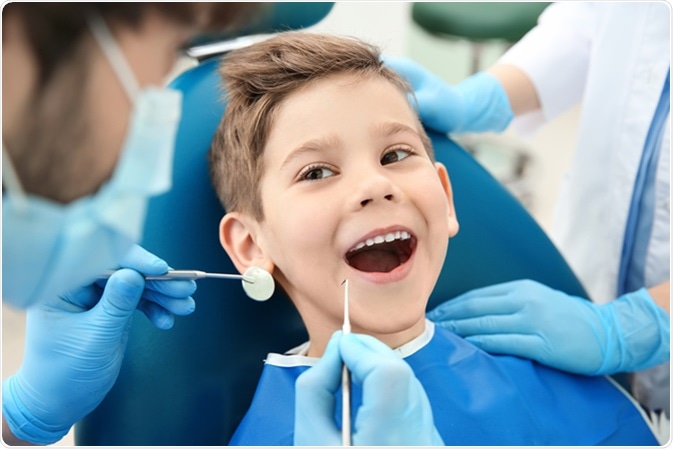The Children’s Health Act was enacted in October 2000, and is a unique piece of U.S. legislation that aims to maintain momentum in research and improve multiple aspects of children’s health.

Image Credit: By Africa Studio / Shutterstock
Important Areas
It is intended that through this Act research will be implemented in many health issues. Some of these include:
Daycare
Improving the quality of daycare, reducing its cost, and making providers more accountable by enforcing state standards for the health and safety of children in daycare. This includes background checks on those who provide childcare, training for such personnel to prevent injuries and illnesses among children in their care, and upgrading facilities where required.
School Health and Safety
Safety of children and their health in schools is prioritized. This legislation sets apart funding for a well-rounded set of community services, students and schools, promotion of mental health, and social services and law enforcement. It is supported by the Center for Mental Health Services with the Department of Justice and the Department of Education.
Healthy Start Programs
Healthy Start programs aim to provide pregnant women and infants within target populations access to health care with the goal to reduce infant mortality and improve birth outcomes.
Autism and Mental Health
- Facilities at the NIH and CDC will be used to understand the causes, diagnosis, prevention, and treatments for autism.
- Safe and effective therapy for mental health and prompt reporting of deaths related to seclusion or the use of restraints, or that occur while patients are under such conditions, or within the ensuing 24 hours will be reported to the Department of Health and Human Services.
- New mental health services and substance abuse research grants will be authorized, as will education for service providers, funding for communities in need, and provisions to restrict drug and alcohol abuse and rehabilitate young drug abusers. These rules trade flexibility in the way funds are used for increased accountability related to program performance.
Children’s Healthcare
- Physician training for those who treat children to improve healthcare
- Ensure that children with emotional and behavioral illnesses are properly diagnosed and treated for as long as required. Improved parental education, better research, and more accurate labeling of childhood conditions will also be addressed.
Addiction
Support will be provided for drug enforcement to curb the use of amphetamine derivatives and inhaled drugs, including investigation of illegal laboratories. Additional assistance will be given to shut down these operators and drug dealers.
National Children’s Study
Another important section of this Act is the authorization of a National Institute of Child Health and Human Development (NICHD) initiative called the National Children’s Study (NCS) to study the impact of environmental factors on child development. Physical, biologic, chemical, and psychosocial influences will be studied. Several agencies will coordinate this nationwide research, including the NICHD, the Centers for Disease Control and Prevention, the U.S. Environmental Protection Agency, and the National Institute of Environmental Health Sciences. The NCS was designed to respond to the need to expand present databases, which are limited in their reach by examining only single toxins with little power to detect interactions between factors, and by too short follow-up periods.
The NCS program aims to follow 100,000 children from conception until age 21 to measure a wide range of factors related to health and development. This program is designed to provide a storehouse of data for many studies to be conducted for years to come.
Further Reading
Last Updated: Nov 19, 2018